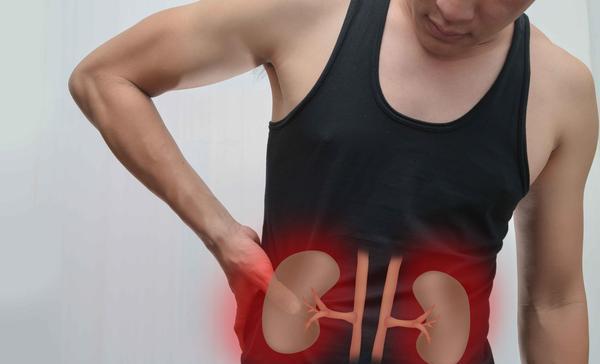Diabetic nephropathy is one of the most common complications of diabetes, referring to chronic kidney disease due to having diabetes.
Once diabetic nephropathy, patients will recur problems such as abnormal blood pressure, edema, proteinuria, and foamy urine in their daily lives.
If left untreated, kidney failure will develop in the later stages, posing a serious threat to the patient's health and life.
Therefore, for diabetic people, we must pay attention to the prevention of diabetic nephropathy in daily life. So, what should be done to effectively avoid diabetic nephropathy?

How to prevent diabetic nephropathy?
1. Reasonable treatment
For people who have already suffered from diabetes, if they do not receive scientific and standardized treatment, resulting in continuous instability in blood glucose levels, the normal function and structure of the kidneys will be affected, resulting in the emergence of diabetic nephropathy.
Therefore, diabetics must receive scientific and standardized treatment, and in strict accordance with the doctor's instructions, regular and regular quantitative use or use of hypoglycemic drugs. There can be no unauthorized change of medication or discontinuation of medication, or even medication reduction.
Second, adjust the diet
After illness, in addition to high-sugar foods and drinks can not be ingested, high-oil, high-salt foods should also be reduced intake, especially the intake of table salt, should be reasonably controlled every day.
Once too much table salt is ingested, the glomeruli will be in a state of high filtration, high pressure and high perfusion, the burden on the kidneys will increase, and the probability of diabetic nephropathy will be particularly high.
Eat more plant foods for three meals a day, especially various vegetables and beans and whole grains, and strictly control the total intake of each meal.
3. Exercise reasonably
Diabetics must carry out some aerobic exercise appropriately every day according to their own constitution. For patients who are overweight, low-intensity aerobic exercise can be performed for about 1 hour a day, which can be carried out in two parts.
If you are thin, you should maintain aerobic exercise for at least half an hour or so every day. It can effectively control blood sugar levels, improve the metabolic function of the body, and effectively prevent the emergence of diabetic nephropathy.
Fourth, reasonable water replenishment
There are many people who believe that diabetics must be hydrated in large quantities every day, which can promote the excretion of some waste products in the body.
Diabetic patients can indeed supplement water appropriately, but if the daily water intake exceeds the standard, it will aggravate kidney function, resulting in an increase in the burden of glomeruli and renal tubules, and the probability of diabetic nephropathy will increase relatively.
Especially for people who have already experienced mild edema, it is necessary to make reasonable hydration and do not have the behavior of hydrating a large amount at one time to prevent increasing the burden on the kidneys.
Fifth, control the three highs
In addition to regularly monitoring blood glucose values, diabetics should also pay attention to the control of blood lipids and blood pressure values. Diabetic patients are prone to some vascular lesions, especially hyperlipidemia, the incidence of hypertension is very high.
Once the blood lipids and blood pressure continue to rise and cannot be well controlled, resulting in excessive blood viscosity, which affects the blood supply to the kidneys, the probability of diabetic nephropathy will naturally increase relatively. Therefore, patients should measure blood pressure values several times a day, and they should be monitored regularly in terms of blood lipids.
All in all, diabetics who want to prevent diabetic nephropathy must pay attention to the conditioning of all aspects of life. In addition to the above 5 points, diabetics should also pay attention to emotional and sleep adjustments.
If the patient has edema, proteinuria, foam urine, fatigue, decreased appetite and other phenomena, they must quickly go to the hospital for examination and corresponding treatment in order to maximize the maintenance of their own health.